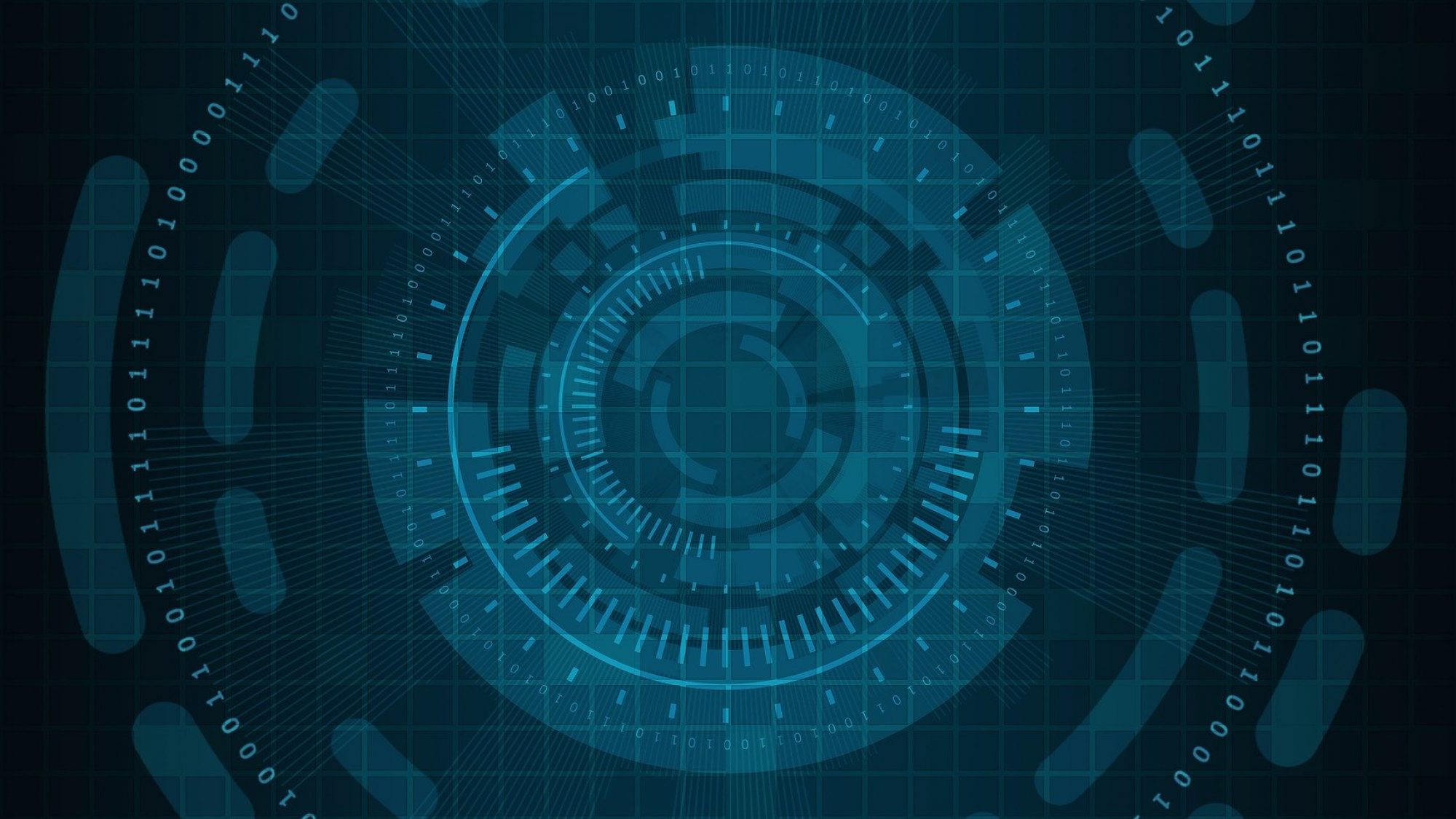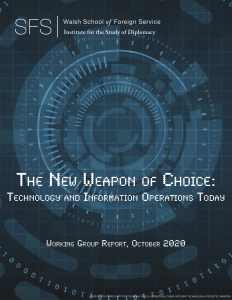Read the report
Summary Brief
In recent years, a growing number of governments, non-state actors, and citizens have rapidly expanded their use of pernicious information operations against other countries and even their fellow citizens. Social media and the internet have become the main tool. The current technological revolution has lowered the cost of entry for those wishing to spread misinformation and disinformation. Some use the internet to propagate an alternative version of the global order they seek to dominate, to damage a regional rival, or to influence their own or others’ elections. The players, tactics, tools, and topics will continue to expand in the months and years ahead, and the coronavirus pandemic has only enhanced the salience of these activities.
Information operation campaigns sow confusion, further divide deeply partisan societies, and are an existential threat to democracies around the world. Thus far, governmental, tech sector, and civil society responses have fallen short, although some have fared better than others. In fall 2019 and the spring 2020, the Institute for the Study of Diplomacy convened a series of working group meetings that included academics and practitioners, private sector specialists, and representatives from civil society. The attendees mapped out this space and identified the challenges inherent in this new form of incipient and widespread information operations. This group also identified potential areas of further engagement, collaboration, and research within the private sector, academia, and civil society. Ultimately, the group came up with a set of principles and policy recommendations for governments, private sector companies, and civil society to enact in both the near-and-long-term in order to mitigate information operations.
Recommendations from the report include:
- The next administration must prioritize information operations. The United States government, and those of other democracies, need to take the requisite steps to combat and mitigate information operations. This includes increased and high-profile staffing, and facilitating a strategic, whole-of-society approach.
- The United States and other governments need to share best practices. There are a handful of nations who have had better success against information operations, and others need to learn from them and use what policies and tactics are transferable.
- Democratic governments need to be more systematic in their internal and external coordination. Internally, governments at the federal, state, and local levels need to work together against information operations. Meanwhile, all affected democracies must work more closely on intelligence when permitted, and coordination efforts toward both bad actors and tech companies.
- Governments need to do more to inform citizens and share information. Regular briefings from either the intelligence community or some other depoliticized entity can inform the press and the public of mis-/disinformation campaigns in real time.
- Governments should do more to incentivize and enhance research into information operations. Mitigation requires the continuation and expansion of numerous avenues of research, to include rapid response mechanisms and artificial intelligence, for example.
- Democracies should use their democratic values to shift the narrative. Democratic governments need to stop playing tactical games and shift the narrative to a strategic level that describes the protection of democratic values as a national security and foundational issue.
- Governments need to do more to regulate technology companies. Technology companies have begun to do more, but their actions are still far short of what is needed. The time has come for governments to take a more direct role in regulating these companies.
- Technology and social media companies must do more to confront this threat. While their actions have increased in recent months, more is needed. Facebook, for example, needs to hire more content moderators, while all platforms should label who has funded advertisements.
- Tech companies should increase transparency and coordination across the full spectrum. As part of a more systematic approach to information sharing, social media and other tech companies need to be more proactive in providing information to governments and civil society actors on their algorithms and the information behind what profiles and accounts they take down.
- Mitigation efforts need to take a whole-of-society approach. Whole-of-government and whole-of-tech approaches are good first steps, but to truly combat and mitigate against information operations, there needs to be an approach that has the government, tech, and civil society sectors working in unison.
- The United States and other democracies need to build societal resilience through education and sensitization.Most citizens of democracies who spread misinformation do so unwittingly. While education and sensitization efforts will not sway the most die-hard political partisans or conspiracy theorists, it can do much to hem in information operations’ worst effects.
- Democracies need “validators” of truth and “champions” of this issue more than ever. All sectors need to work in tandem to find new sources – whether they be groups or individuals or a combination of both—of objective truth that are outside of our respective echo chambers and news “bubbles.” Likewise, democracies are in dire need of “champions” that can rise above the political fray in order to highlight mis-/disinformation at a nonpartisan level.
- All sectors can do more to develop new “norms” around information operations. This includes pledges from political campaigns not to spread misleading content or use manipulated content on social media, tech companies creating new norms around transparency, and journalists agreeing upon a code-of-conduct on how they handle hack-and- leaks, for example.
- Rapid response mechanisms need to be put in place, normalized, and systematized. Responses to information operations have been scatter shot across the board. Governments, the tech sector, and civil society need to put in place a system for all players to use individually and in tandem when responding to mis- and disinformation.
Listen to a discussion with Nina Jankowicz, who studies disinformation at the Wilson Center and has new book on this topic: How to Lose the Information War: Russia, Fake News, and the Future of Conflict. Subscribe to ISD’s podcast, Diplomatic Immunity wherever you get your podcasts.

